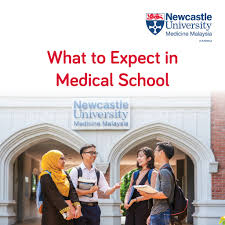The MBBS curriculum, an intricate and comprehensive framework, is designed to shape aspiring doctors into skilled medical professionals. Students embarking on this journey are guided through a structured educational process, which is meticulously planned and executed to ensure a well-rounded medical education.
Initially, the curriculum is divided into pre-clinical and clinical phases, with each phase focusing on distinct aspects of medical education. During the pre-clinical phase, foundational knowledge is emphasized. This stage is characterized by a rigorous study of basic sciences, including anatomy, physiology, biochemistry, and pharmacology. Lectures, practical sessions, and laboratory work are integral components, providing students with a solid base in the sciences that underpin medical practice.
Anatomy is often the first subject introduced. Detailed dissection of cadavers and the study of human body structures are conducted, allowing students to gain a deep understanding of anatomical systems. Similarly, physiology and biochemistry are explored through theoretical lectures and practical experiments. These subjects are essential for understanding the normal functions and biochemical processes of the human body.
Following the completion of the pre-clinical phase, students transition into the clinical phase, where hands-on experience becomes the focal point. Clinical rotations are organized in various departments such as internal medicine, surgery, pediatrics, obstetrics, and gynecology. During these rotations, students are exposed to real-world medical scenarios, interact with patients, and apply theoretical knowledge in practical settings.
In addition to clinical rotations, significant emphasis is placed on the development of clinical skills. Skills such as patient history taking, physical examination, and diagnostic reasoning are honed. Practical sessions, simulations, and bedside teaching are employed to ensure that students acquire and refine these essential skills.
Another critical component of the MBBS curriculum is the integration of community medicine. Students are introduced to public health principles and practices, which include preventive medicine, epidemiology, and health promotion. Field visits and community-based projects are conducted to help students understand the broader context of health care and the impact of socio-economic factors on health.
Throughout the curriculum, assessments are routinely conducted to evaluate students’ understanding and competencies. Examinations, practical assessments, and clinical evaluations are used to gauge progress and ensure that educational objectives are met. Feedback is provided to guide students in their academic and professional development.
The curriculum is designed to be challenging and demanding, requiring a high level of commitment and dedication. However, it is structured to provide a balanced approach to learning, ensuring that students are well-prepared for the medical profession. Support systems, such as mentorship and academic counseling, are provided to assist students in navigating the complexities of medical education.
In addition to the academic and practical components, the development of professional attitudes and ethical values is emphasized throughout the curriculum. Medical ethics, communication skills, and professionalism are integrated into various aspects of the education process. Students are encouraged to cultivate empathy, integrity, and a commitment to patient-centered care.
In conclusion, the MBBS curriculum is a comprehensive and meticulously structured program designed to equip students with the knowledge, skills, and attitudes necessary for a successful medical career. The integration of basic sciences, clinical experience, community medicine, and professional development ensures a well-rounded education. The curriculum is demanding, but it is structured to prepare students for the challenges and responsibilities of the medical profession, ultimately contributing to the development of competent and compassionate physicians.










